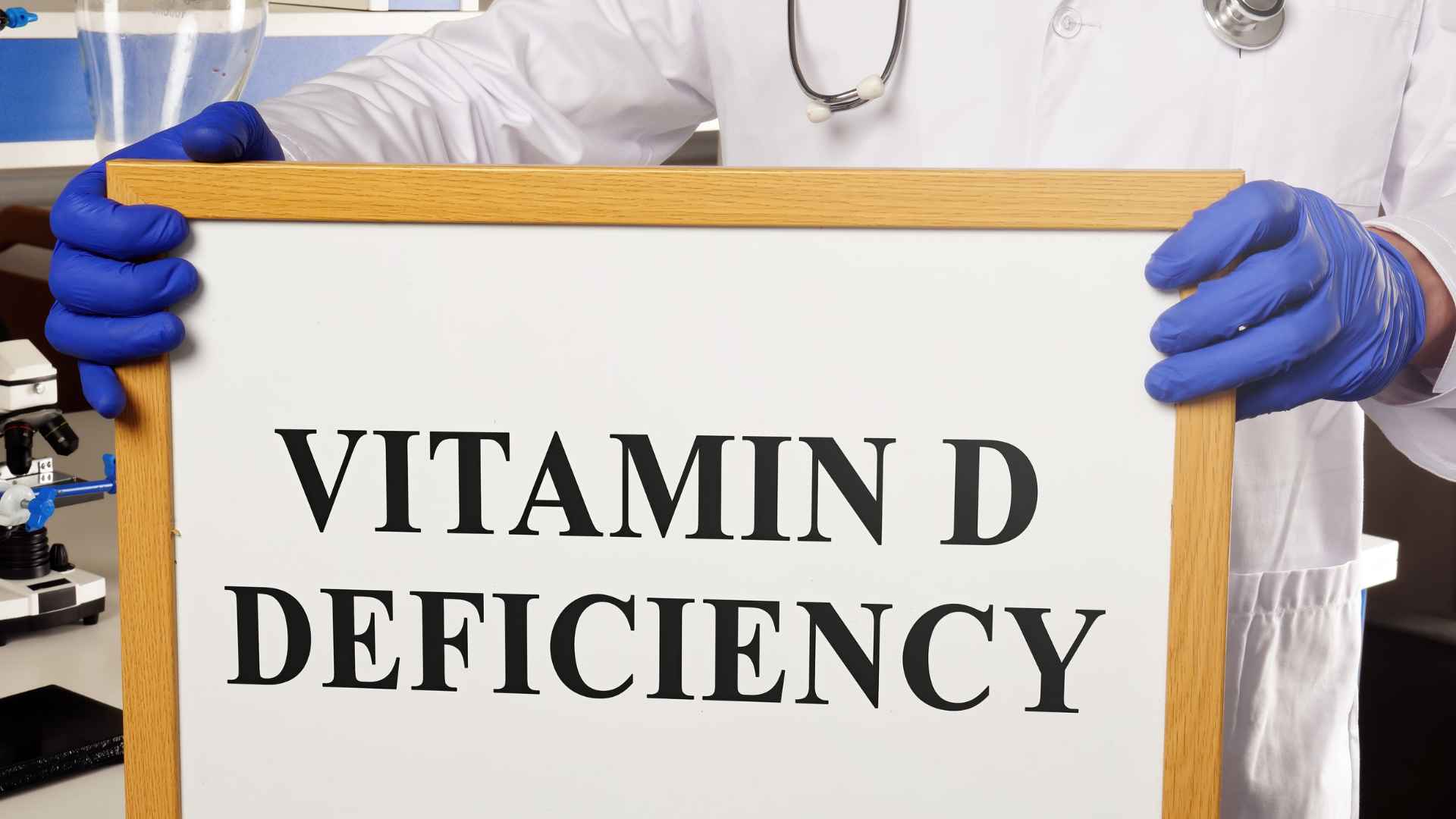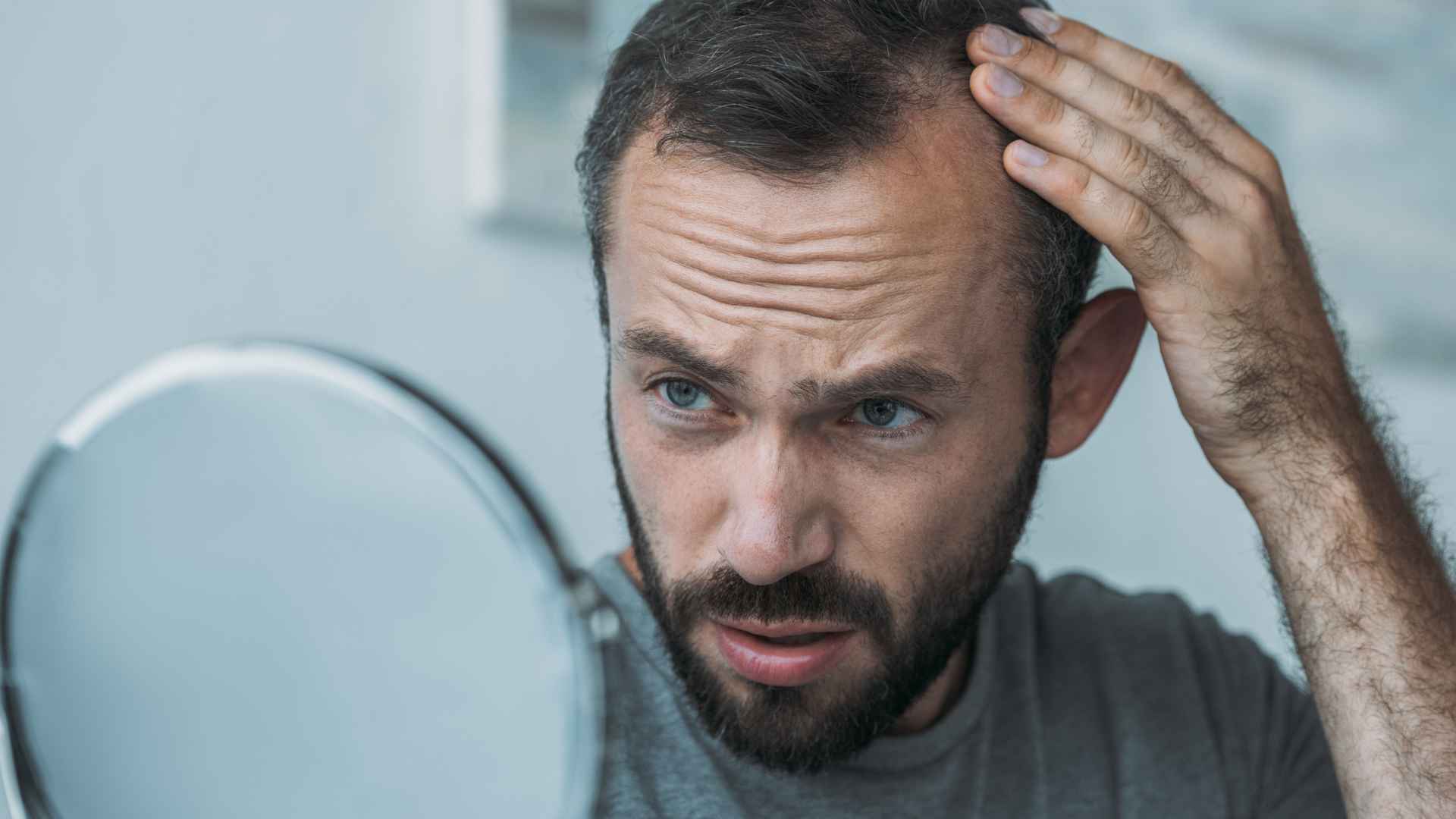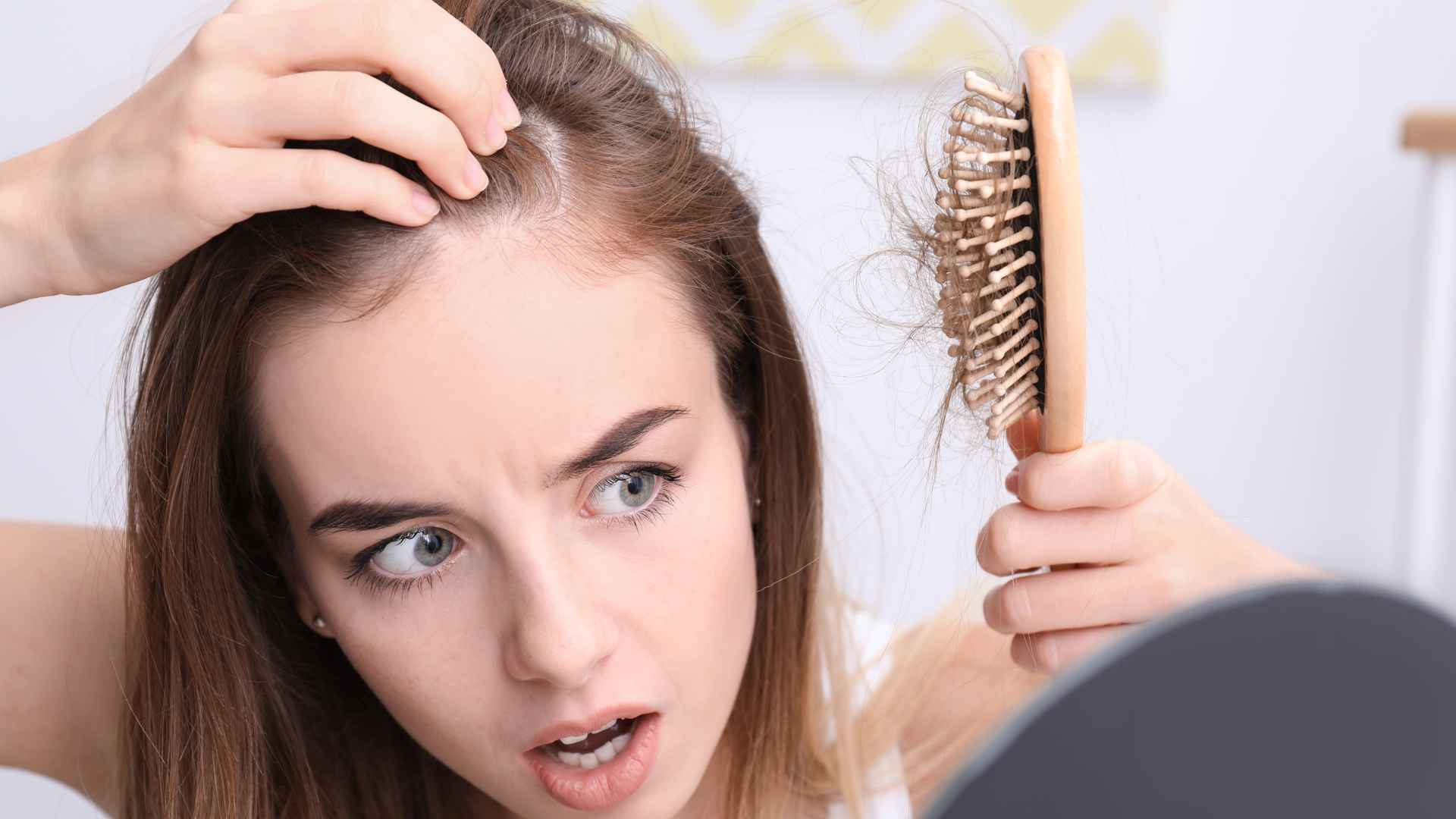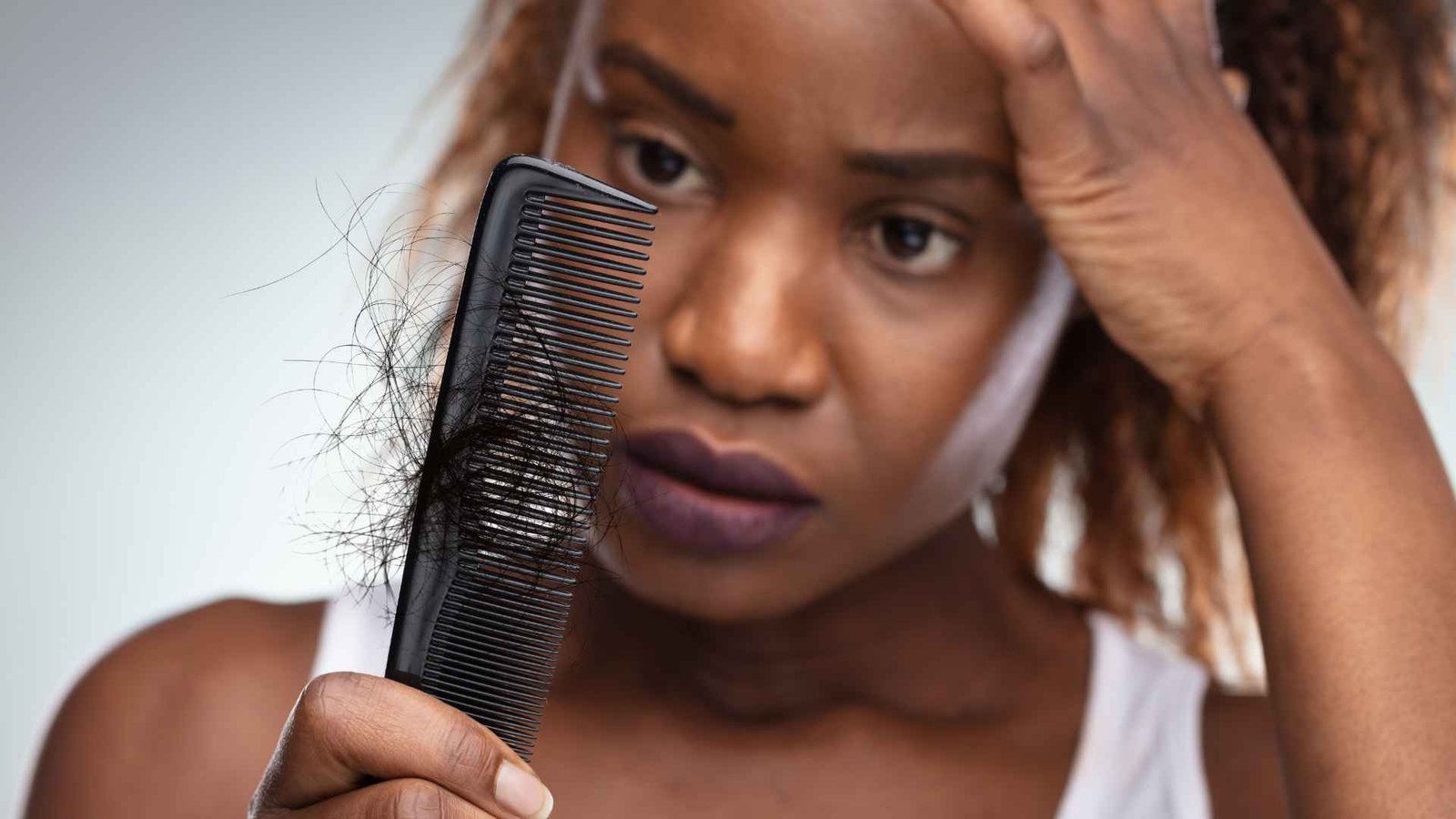Your hair is often referred to as your crowning glory, and it plays a significant role in your overall appearance and self-confidence. Thick, luscious hair is a desirable trait that many of us strive to maintain. However, if you’re experiencing hair loss, it can be distressing and have a negative impact on your self-esteem. While there can be various causes for hair loss, one often overlooked factor is vitamin deficiency.
Vitamins are essential nutrients that play a crucial role in maintaining overall health, and they also have a direct influence on the health of your hair. Insufficient levels of certain vitamins can lead to hair loss and other hair-related problems. Understanding the link between vitamin deficiency and hair loss is crucial for effectively addressing the issue and restoring your hair’s health and vitality.
In this article, we will delve into the connection between vitamin deficiency and hair loss. We will explore the role of vitamins in promoting healthy hair growth and discuss specific vitamin deficiencies that can contribute to hair loss. Additionally, we will provide insights into diagnosing and treating vitamin deficiency-related hair loss, along with practical tips for preventing hair loss through proper nutrition.
By the end of this article, you will have a comprehensive understanding of how vitamin deficiency can impact your hair and what steps you can take to promote a healthy head of hair. Let’s dive in!
Understanding Hair Loss

Hair loss, also known as alopecia, refers to the partial or complete loss of hair from areas of the body where it typically grows, such as the scalp. It is a common condition that affects both men and women and can occur for various reasons. Understanding the common causes of hair loss is essential in identifying the underlying factors and determining the most effective treatment approaches.
There are several factors that can contribute to hair loss, including:
- Genetics: Family history and hereditary factors can play a significant role in hair loss. Conditions such as male pattern baldness (androgenetic alopecia) and female pattern hair loss are influenced by genetic predisposition.
- Hormonal Changes: Hormonal imbalances, such as those that occur during pregnancy, childbirth, menopause, or thyroid disorders, can contribute to hair loss. These imbalances affect the hair growth cycle and lead to excessive shedding.
- Medical Conditions: Certain medical conditions, such as alopecia areata (an autoimmune condition that causes patchy hair loss), scalp infections, and trichotillomania (a hair-pulling disorder), can result in hair loss.
- Stress and Trauma: Physical or emotional stress can disrupt the hair growth cycle, leading to temporary hair loss. Traumatic events, major surgeries, or significant weight loss can also trigger hair loss.
- Medications and Treatments: Some medications, such as chemotherapy drugs, antidepressants, and blood thinners, can cause hair loss as a side effect. Additionally, certain hair treatments, like excessive heat styling or chemical treatments, can damage the hair follicles and lead to hair loss.
Among these various causes, vitamin deficiency is often overlooked but can contribute to hair loss. Insufficient levels of certain vitamins can disrupt the normal hair growth cycle and result in hair thinning and shedding. Identifying the specific vitamin deficiency responsible for hair loss is crucial for effective treatment.
Each vitamin plays a unique role in maintaining hair health. For example, vitamin A promotes healthy sebum production, vitamin B complex vitamins (particularly biotin) contribute to hair strength and growth, vitamin C aids in collagen synthesis, vitamin D stimulates hair follicles, and vitamin E acts as an antioxidant and improves blood circulation to the scalp. Therefore, determining the specific vitamin deficiency allows for targeted supplementation or dietary adjustments to restore the balance and promote hair regrowth.
In the following sections, we will delve into the role of vitamins in hair health and explore the specific vitamin deficiencies that can cause hair loss. By understanding these connections, you can take proactive steps to address any deficiencies and nourish your hair from within.
The Role of Vitamins in Hair Health

Vitamins play a vital role in maintaining healthy hair by nourishing the hair follicles, promoting proper hair growth, and preventing hair-related issues. Let’s explore the primary vitamins involved in hair growth and health:
- Vitamin A: Vitamin A is essential for promoting hair growth and maintaining a healthy scalp. It helps in the production of sebum, a natural oil that moisturizes the scalp and keeps the hair follicles lubricated. Adequate vitamin A levels prevent dryness and itchiness, which can contribute to hair loss and brittle hair.
- Vitamin B Complex: B vitamins, particularly Biotin (B7) and Niacin (B3), are crucial for maintaining hair health. Biotin plays a significant role in strengthening the hair shaft and improving its elasticity, reducing the risk of breakage and hair loss. Niacin promotes blood circulation to the scalp, ensuring that the hair follicles receive an adequate supply of oxygen and nutrients for healthy growth.
- Vitamin C: Vitamin C is known for its antioxidant properties, which help protect the hair follicles from damage caused by free radicals. Additionally, vitamin C is essential for collagen production, a protein that forms the structure of the hair. Adequate collagen synthesis ensures strong, resilient hair strands.
- Vitamin D: Vitamin D plays a crucial role in hair follicle stimulation and the hair growth cycle. It helps in the activation of hair follicles, promoting new hair growth and preventing dormant follicles from entering a resting phase. Insufficient vitamin D levels can disrupt the hair growth cycle and contribute to hair thinning and hair loss.
- Vitamin E: Vitamin E is a potent antioxidant that protects the hair follicles from oxidative stress. It improves blood circulation to the scalp, ensuring that the hair follicles receive an adequate supply of nutrients and oxygen. Vitamin E also helps in maintaining a healthy scalp environment, reducing inflammation and promoting hair growth.
- Iron and Zinc: While not vitamins, iron and zinc are essential minerals that contribute to hair health. Iron deficiency (anemia) can lead to hair loss as iron is necessary for the production of hemoglobin, which carries oxygen to the hair follicles. Zinc helps in maintaining the health of the hair follicles and promotes healthy cell division, crucial for hair growth.
Ensuring an adequate intake of these vitamins and minerals through a balanced diet or supplements can help maintain healthy hair and prevent deficiencies that may contribute to hair loss. In the next section, we will explore specific vitamin deficiencies and their connection to hair loss.
Vitamin Deficiency and Hair Loss
Vitamin deficiencies can have a direct impact on the health of your hair, leading to hair loss and other hair-related issues. Let’s explore the connection between specific vitamin deficiencies and hair loss:
- Vitamin A Deficiency: Insufficient levels of vitamin A can affect the hair follicles, leading to hair loss. Vitamin A plays a crucial role in promoting cell growth and differentiation, including the cells responsible for hair follicle development. Deficiency can cause dryness and clogging of the sebaceous glands, leading to a dry scalp and potentially inhibiting hair growth.
- Biotin Deficiency: Biotin, also known as vitamin B7, is essential for maintaining healthy hair. A deficiency in biotin can lead to brittle hair, dry scalp, and hair loss. Biotin supports the production of keratin, a protein that makes up the structure of the hair. Insufficient biotin levels can weaken the hair shaft, making it more prone to breakage and hair loss.
- Vitamin C Deficiency: Vitamin C deficiency can weaken the hair shafts, leading to hair loss. Vitamin C plays a vital role in collagen synthesis, which is essential for maintaining the strength and integrity of the hair. Insufficient levels of vitamin C can result in weakened hair strands that are prone to breakage and hair loss.
- Vitamin D Deficiency: Inadequate vitamin D levels can disrupt the hair growth cycle and contribute to hair loss. Vitamin D is involved in the activation of hair follicles and the stimulation of new hair growth. Deficiency can lead to dormant hair follicles, resulting in hair thinning and decreased hair density.
- Vitamin E Deficiency: Vitamin E deficiency can impact blood circulation to the scalp, affecting hair health. This vitamin has antioxidant properties that protect the hair follicles from oxidative stress. Insufficient vitamin E levels can result in reduced blood flow to the scalp, compromising the delivery of nutrients and oxygen to the hair follicles and potentially leading to hair loss.
- Iron and Zinc Deficiency: Deficiencies in iron and zinc can contribute to hair loss. Iron is necessary for the production of hemoglobin, a protein that carries oxygen to the hair follicles. Inadequate iron levels can lead to reduced oxygen supply, causing hair follicles to enter a dormant phase and resulting in hair shedding. Zinc deficiency can impact the health of hair follicles and contribute to hair loss as well.
It’s important to note that these deficiencies are just one potential cause of hair loss and that other factors can also be at play. If you suspect a vitamin deficiency may be contributing to your hair loss, it’s recommended to consult with a healthcare professional who can diagnose the deficiency and provide appropriate treatment options.
Diagnosing and Treating Vitamin Deficiency-Related Hair Loss

Diagnosing and treating hair loss related to vitamin deficiencies require professional guidance and proper diagnostic tests. Healthcare professionals play a crucial role in determining the underlying causes of hair loss and identifying specific vitamin deficiencies. Let’s explore the importance of seeking medical advice, diagnostic methods, and treatment options:
Importance of Seeking Medical Advice and Diagnostic Tests:
Hair loss can have multiple causes, and self-diagnosing the exact vitamin deficiency responsible can be challenging. Consulting a healthcare professional, such as a dermatologist or a trichologist, is essential for an accurate diagnosis. They will consider your medical history, conduct a physical examination of your hair and scalp, and may recommend specific tests to identify any underlying deficiencies or conditions contributing to hair loss.
Determining Vitamin Deficiency:
Healthcare professionals can determine if hair loss is due to a vitamin deficiency through various diagnostic methods. These may include blood tests to assess vitamin levels, such as vitamin A, Biotin (B7), Niacin (B3), vitamin C, vitamin D, vitamin E, iron, and zinc. The results of these tests will provide valuable insights into the specific deficiencies that need to be addressed.
Treatment Options for Specific Vitamin Deficiencies:
Once a specific vitamin deficiency is identified as the cause of hair loss, treatment options can be recommended. These may include:
- Dietary Changes: Adjusting your diet to include foods rich in the specific vitamins that you are deficient in can help restore the balance. For example, incorporating foods like carrots, sweet potatoes, leafy greens, citrus fruits, fatty fish, nuts, seeds, and lean meats can provide the necessary vitamins for hair health.
- Vitamin Supplementation: In some cases, healthcare professionals may prescribe oral supplements to address the specific vitamin deficiencies. These supplements can help replenish the nutrient levels and promote hair regrowth. It’s important to follow the recommended dosage and duration as advised by your healthcare provider.
Importance of a Balanced Diet and Healthy Lifestyle:
In addition to vitamin supplementation or dietary changes, maintaining a balanced diet and adopting a healthy lifestyle are crucial for overall hair health. Eating a well-rounded diet that includes a variety of nutrients, staying hydrated, managing stress levels, and avoiding excessive heat styling or chemical treatments can contribute to healthier hair growth. A holistic approach to hair care promotes long-term benefits and supports the effectiveness of vitamin treatments.
Remember, it’s essential to follow the guidance of healthcare professionals and undergo regular follow-ups to monitor progress and adjust the treatment plan if needed. Seeking professional advice ensures a comprehensive approach to addressing vitamin deficiency-related hair loss and increases the likelihood of successful treatment outcomes.
Preventing Hair Loss through Proper Nutrition

Maintaining healthy hair goes beyond treating vitamin deficiencies. A well-rounded diet that provides essential nutrients is crucial for promoting strong and vibrant hair. Here are some general dietary guidelines to help you maintain healthy hair:
1. Include Foods Rich in Essential Vitamins and Minerals:
To support healthy hair growth, incorporate foods that are rich in the vitamins and minerals mentioned earlier:
- Vitamin A: Include foods like carrots, sweet potatoes, spinach, and broccoli.
- Biotin (B7) and Niacin (B3): Consume foods such as eggs, nuts, seeds, whole grains, and legumes.
- Vitamin C: Incorporate citrus fruits, strawberries, bell peppers, and leafy greens.
- Vitamin D: Get sunlight exposure and consume foods like fatty fish, fortified dairy products, and mushrooms.
- Vitamin E: Include sources like almonds, sunflower seeds, spinach, and avocados.
- Iron: Consume foods like lean red meat, poultry, fish, legumes, spinach, and fortified cereals.
- Zinc: Include foods such as oysters, beef, pumpkin seeds, lentils, and chickpeas.
2. Emphasize a Well-Rounded Diet:
In addition to specific vitamins and minerals, ensure a well-rounded diet that includes a variety of nutrients. Incorporate lean proteins (chicken, fish, tofu), healthy fats (avocado, nuts, olive oil), complex carbohydrates (whole grains, fruits, vegetables), and a good intake of fiber. A balanced diet provides the necessary nutrients for overall health, including the health of your hair.
3. Maintain a Healthy Lifestyle and Manage Stress:
Stress can contribute to hair loss and impact overall hair health. Practice stress management techniques such as regular exercise, meditation, yoga, or engaging in activities you enjoy. Additionally, prioritize a healthy lifestyle by getting enough sleep, staying hydrated, and avoiding smoking and excessive alcohol consumption. These habits promote overall well-being and contribute to healthy hair.
Remember, dietary changes alone may not reverse hair loss caused by underlying medical conditions or genetic factors. If you’re experiencing persistent hair loss or have concerns, it’s crucial to consult a healthcare professional for a thorough evaluation and appropriate treatment.
Incorporating these dietary guidelines, along with a healthy lifestyle and stress management, can provide the foundation for maintaining healthy hair. Nourishing your body with essential nutrients and taking care of your overall well-being will support optimal hair growth and minimize the risk of hair loss.
Watch Are there any vitamins that may help with hairloss? | Video
Top 5 FAQs and answers related to what vitamin deficiency causes hair loss
What vitamin deficiency causes hair loss?
Hair loss can be caused by various factors, but specific vitamin deficiencies can contribute to it. Vitamin deficiencies commonly associated with hair loss include vitamin A, vitamin B7 (biotin), vitamin C, vitamin D, and vitamin E. These vitamins play important roles in promoting hair growth, maintaining a healthy scalp, and preventing hair thinning and breakage.
How can I determine if my hair loss is due to a vitamin deficiency?
It’s best to consult a healthcare professional, such as a dermatologist or a trichologist, for an accurate diagnosis. They can evaluate your medical history, conduct a physical examination of your hair and scalp, and may recommend blood tests to check for specific vitamin deficiencies. These tests can help identify if your hair loss is related to a vitamin deficiency or if there are other underlying causes.
Can vitamin supplements help treat hair loss due to vitamin deficiency?
Yes, in cases where hair loss is caused by a specific vitamin deficiency, vitamin supplementation can be beneficial. Your healthcare professional may recommend oral supplements containing the deficient vitamins to restore the nutrient balance in your body. It’s important to follow the recommended dosage and duration as advised by your healthcare provider for optimal results.
Can I address hair loss due to vitamin deficiency through dietary changes alone?
In some cases, dietary changes can help address hair loss related to vitamin deficiencies. Including foods rich in the deficient vitamins, such as fruits, vegetables, whole grains, lean meats, fish, and nuts, can provide the necessary nutrients for hair health. However, if the deficiency is severe or if dietary changes alone are insufficient, supplements may be recommended to ensure adequate nutrient intake.
Is hair loss solely caused by vitamin deficiency?
While vitamin deficiency can contribute to hair loss, it’s essential to note that it’s not the only cause. Hair loss can be influenced by various factors, including genetics, hormonal changes, medical conditions, certain medications, and lifestyle factors. Therefore, if you’re experiencing persistent or severe hair loss, it’s important to consult a healthcare professional for a comprehensive evaluation to determine the underlying cause and appropriate treatment.
Conclusion

Hair loss can be a distressing experience, and identifying the underlying causes is crucial for effective treatment. Vitamin deficiencies are often overlooked but can contribute to hair loss. Understanding the role of vitamins in hair health and recognizing the signs of deficiency can help address the problem.
It’s important to consult healthcare professionals for a proper diagnosis and treatment plan. They can conduct the necessary tests to identify specific vitamin deficiencies and recommend appropriate interventions. Whether it’s dietary changes or vitamin supplementation, their guidance ensures a targeted approach to restoring hair health.
Additionally, maintaining a balanced diet and overall wellness is essential for healthy hair. A diet rich in vitamins, minerals, and other nutrients supports hair growth and strength. Emphasize the importance of incorporating fruits, vegetables, lean proteins, and healthy fats into your meals. Additionally, managing stress levels, getting enough sleep, and practicing a healthy lifestyle contribute to overall hair health.
Remember, while vitamin deficiencies can contribute to hair loss, it’s crucial to consider other potential causes as well. Your healthcare professional can guide you through the diagnostic process and develop a personalized treatment plan based on your specific needs.
Don’t let hair loss take a toll on your confidence. Take proactive steps to identify and address vitamin deficiencies, consult professionals for guidance, and maintain a holistic approach to hair care. With the right interventions and a commitment to overall wellness, you can nurture your hair back to health and enjoy a vibrant, healthy mane.
Please share this What Vitamin Deficiency Causes Hair Loss and Thinning? Guide with your friends and do a comment below about your feedback.
We will meet you on next article.
Until you can read, Does Radiation Therapy Cause Hair Loss? Here’s the Truth!